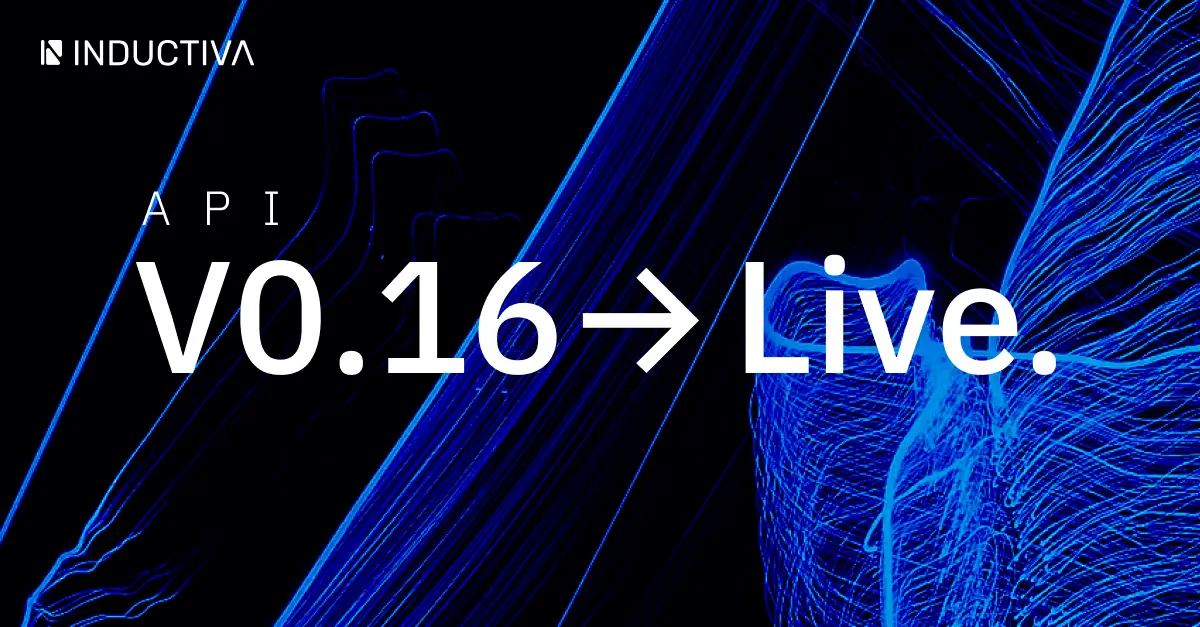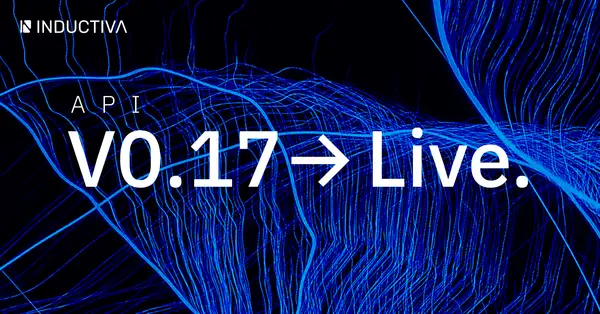We’re happy to share with our community Inductiva.AI v0.16, a powerful new release designed to help you organize simulations at scale, preserve context with metadata, and gain full control over your simulation environments. This version brings major upgrades to Project management, adds built-in metadata support, and now allows you to run your own private simulators securely. Plus, we’ve expanded our simulator catalog with two new engines for hydrodynamics and coastal modeling: OpenTelemac and Delft3D.
Whether you’re managing 10 or 10,000 simulations, this release helps you move faster, stay organized, and simulate anything — from river flows to molecular dynamics — on your terms.
💼 Smarter Projects: Organize, Group, and Manage Tasks with Ease
Whether you need to organize multiple simultaneous projects; or you want to arrange the results of your project’s model building, experimentation and analysis phases, managing related simulations just got easier. The Project functionality has been significantly upgraded — both in the Web Console and in the Python client:
- Create, delete, or rename projects directly in the web interface.
- Move tasks between projects with a click.
- Assign tasks to a project at runtime.
Whether you’re training AI models or running parameter sweeps, this makes large-scale experiment tracking seamless.
Check out all of the Projects-related Python instructions, and the short video showcasing how to manage your Tasks and Projects in the web Console.

🧩 MPI Cluster in spot mode
We’re excited to announce that you can now launch MPI clusters in spot mode! This means you can take full advantage of significantly reduced costs while running distributed simulations across multiple machines. Simply enable the spot mode when starting your cluster to begin saving:
cloud_machine = inductiva.resources.MPICluster( \
machine_type="c2d-highcpu-112",
num_machines=8,
data_disk_gb=200,
spot=True)
The drawback is that if one of the machines in the MPI cluster gets preempted the whole simulation fails. You can use MPI clusters with machines that are less likely to be preempted or use it for a short burst of extreme processing power.
🏷️ Task Metadata: Built-In Context for Every Simulation
Many of our users run hundreds or even thousands of tasks — with just minor changes in input parameters. Now, you can attach custom metadata to each task directly on the platform, helping you trace, filter, and retrieve simulation details effortlessly:
No more spreadsheets or local databases to associate task IDs with their corresponding parameter sets — your experiments are self-documenting.
Explore the Python instructions related to Task Metadata, and watch the short video that demonstrates how to manage it in the web Console.

🔍 Real-Time Output Previews: See Your Simulation Live
No more waiting until the end of a simulation to inspect your results. With v0.16, you can now preview output files in real time directly in the Web Console — just click on any file while your task is running.
The Python client also supports live logs: if your script includes a ‘task.wait()’ line, the stdout and stderr are printed to your terminal in real time — delivering a true “infinite laptop” experience.

🌊 Two New Simulators: OpenTelemac & Delft3D
We’ve added two powerhouse simulators in the field of coastal, riverine, and environmental modeling:
🌀 OpenTelemac
An open-source suite for simulating free-surface water flows, sediment transport, waves, and water quality in rivers and coastal zones. Commonly used for flood forecasting and coastal engineering.
Dive into our comprehensive guide covering everything you need to know about using OpenTelemac at Inductiva.
🌊 Delft3D
Developed by Deltares, this suite simulates hydrodynamics, waves, morphodynamics, and water quality. It’s a go-to tool for environmental impact assessments and infrastructure planning.
Delve into the detailed guide we created for all things Delft3D at Inductiva.
Explore our full simulator catalog → inductiva.ai/simulators
🧪 Bring Your Own Software (Securely)
Beyond our 20+ built-in simulators, v0.16 now supports private custom containers. You can upload .sif containers to your personal cloud storage and run them directly from the Python client.

Perfect for enterprise use cases, sensitive environments, or bleeding-edge research.
📘 How to use private simulators
This feature is only available for the Enterprise and Academia users – Review Inductiva’s Pricing plans
⚡ Other Platform Improvements
🗜️ Faster Compression for Outputs
Simulation results are automatically archived and uploaded to permanent cloud storage. This compression step now uses 7zip with multicore support, which can be up to 32x faster depending on the number of CPU cores.
You can control this directly in your script:
# Enable compression (now default)
simulator.run(..., compress_outputs=True)💸 Data Transfer Cost Transparency
Cloud egress fees (especially from providers like Google Cloud) are now shown separately from storage costs. Better visibility = better budgeting.

👥 Organization-Level Credits
If you’re part of a team, your credits are now shared across your organization. This makes it much easier to manage the team’s credits balance: the top-up amount is shared among all team members, avoiding the effort (and red tape!) to get multiple billing approvals for the same team.
📘 Documentation Redesign
All API references and tutorials are now consolidated on our main website, under the Resources section — easier to find and beautifully restyled.
📱 Improved UI Responsiveness
The sidebar is now collapsible, scrollable, and better optimized for mobile — so you can manage simulations on the go, comfortably.

🧪 Experimental Features (BETA)
🐍 Python Playground
Try Inductiva directly in your browser — no installation, no API keys. A fast and frictionless way to explore the platform or onboard collaborators.

🔔 Events System (Triggers & Actions)
Wouldn’t it be great to receive an email notification when a specific simulation task finishes after many hours of number crunching? What about invoking a specific url callback, to initiate the next step on your automated pipeline? These automations will soon be possible, and users will be able to define triggers and subsequent actions to streamline their simulation workflows.
In v0.16, the Beta version of this “Events system” enables you to get notified when simulations finish. Here’s how to set up an email alert when your task has finished:
import inductiva
from inductiva import events
cloud_machine = inductiva.resources.MachineGroup("c2-standard-4")
input_dir = inductiva.utils.download_from_url(
"https://storage.googleapis.com/inductiva-api-demo-files/"
"reef3d-input-example.zip",
unzip=True)
reef3d = inductiva.simulators.REEF3D()
task = reef3d.run(input_dir=input_dir, on=cloud_machine)
# Register event to send email notification when task output is uploaded
events.register(
events.triggers.TaskOutputUploaded(task_id=task.id),
events.actions.EmailNotification(inductiva.users.get_info()['email']))
task.wait()
cloud_machine.terminate()
task.download_outputs()
You can also list or remove events:
inductiva.events.list()
inductiva.events.remove(event_id)
🔗 Ready to Explore?
Inductiva.AI 0.16 brings you organization, insight, and flexibility — whether you’re running one simulation or ten thousand. Now with smarter Projects, embedded metadata, and two world-class hydrodynamics simulators to expand your scientific reach.
👉 Try it today at inductiva.ai



